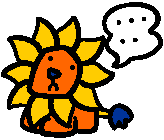
-------------------------------------------------------------------
#16 聖書では人間が動物を治めることを認めているのではないでしょうか?
-------------------------------------------------------------------
聖書の中に人間が動物を治めることを認める記述(*1)があるのは事実
です。もしも聖書が本当に神の言葉であり、神こそが道徳における最高
権威であるとするのであればその事実は重要だということになります。
とりあえず治めるとはどういう意味なのかという話は置いておいて聖
書を道徳的権威とするという考え方について検討してみましょう。
まず始めに聖書の解釈の仕方について大きな問題があります。聖書
の中の多くの箇所が互いに相矛盾する内容をもっています。同一の箇所
についてもその解釈は学者によって大きく異なることがあります。
次に世界中の様々な文化の中には様々な神が存在しているという事実
があります。そうした中には人間に対してすべての生き物を尊重し無益
な殺生はしない様にと要請する神もいます。どの神を道徳の最高権威に
するべきだと言うのでしょうか?
最後に、トム・レーガンが指摘している様に多くの人々は神の存在を
信じていないので神の道徳的権威を主張しても無駄だという問題があり
ます。その様な人々にとっては神の言葉とされるものであってもその正
当性は何か別の道理が通った手段により十分に検討した上でなければ認
めることができないものなのです。人間が動物を治めるべきかどうかな
どといったことをどうやって検討すれば良いのでしょうか?
その様な人々の態度は聖書の他の箇所において人間が行う行為として
認めている事柄(例えば動物を食べること)に対しても同様です。
もし仮に聖書の神を道徳的権威として認めるとしてもなお「治める」
という言葉は「責務を持つ」あるいは「監督権を持つ」といった意味合
いの漠然とした言葉だと指摘することができます。その責務や監督権を
正しく行使するということは動物の命や動物が自然な状態で生きる権利
を尊重することにつながると考えてもおかしくはありません。
動物を治めることが残忍な動物の搾取にまで飛躍することを是認する
ような記述はこの質問で引き合いに出されている聖書の中には明示的に
であれ暗示的にであれ存在しません。
DG
訳注)*1.
神はまた言われた、「地は生き物を種類にしたがっていだせ。家畜と、
這うものと、地の獣とを種類にしたがっていだせ」そのようになった。
神は地の獣を種類にしたがい、家畜を種類にしたがい、また地に這うす
べての物を種類にしたがって造られた。神は見て、良しとされた。
神はまた言われた、「われわれのかたちに、われわれにかたどって人を
造り、これに海の魚と、空の鳥と、家畜と、地のすべての獣と、地のすべ
ての這うものとを治めさせよう」
神は自分のかたちに人を創造された。すなわち、神のかたちに創造し、
男と女に創造された。神は彼らを祝福して言われた、「生めよ、ふえよ、
地に満ちよ、地を従わせよ。また海の魚と、空の鳥と、地に動くすべての
生き物とを治めよ」
(創世記第1章24〜28節 日本聖書協会口語訳1955�年)

...............



-----------------------
#16 Doesn't the Bible give Humanity dominion over the animals?
-----------------------
It is true that the Bible contains a passage that confers on humanity
dominion over the animals. The import of this fact derives from the
assumption that the Bible is the word of God, and that God is the ultimate
moral authority. Leaving aside for the moment consideration of the meaning
of dominion, we can take issue with the idea of seeking moral authority from
the Bible. First, there are serious problems with the interpretation of
Biblical passages, with many verses contradicting one another, and with
many scholars differing dramatically over the meaning of given verses.
Second, there are many claims to God-hood among the diverse cultures of
this world; some of these Gods implore us to respect all life and to not
kill unnecessarily. Whose God are we to take as the ultimate moral
authority?
Finally, as Tom Regan observes, many people do not believe in a God and
so appeals to His moral authority are empty for such people. For such
people, the validity of judgments of the supposed God must be cross-checked
with other methods of determining reasonableness. What are the cross-checks
for the Biblical assertions?
These remarks apply equally to other assertions of Biblical approval of
human practices (such as the consumption of animals).
Even if we accept that the God of the Bible is a moral authority, we
can point out that "dominion" is a vague term, meaning "stewardship" or
"control over". It is quite easy to argue that appropriate stewardship
or control consists of respecting the life of animals and their right
to live according to their own nature. The jump from dominion to approval
of our brutal exploitation of animals is not contained in the cited
Biblical passage, either explicitly or implicitly.
DG




